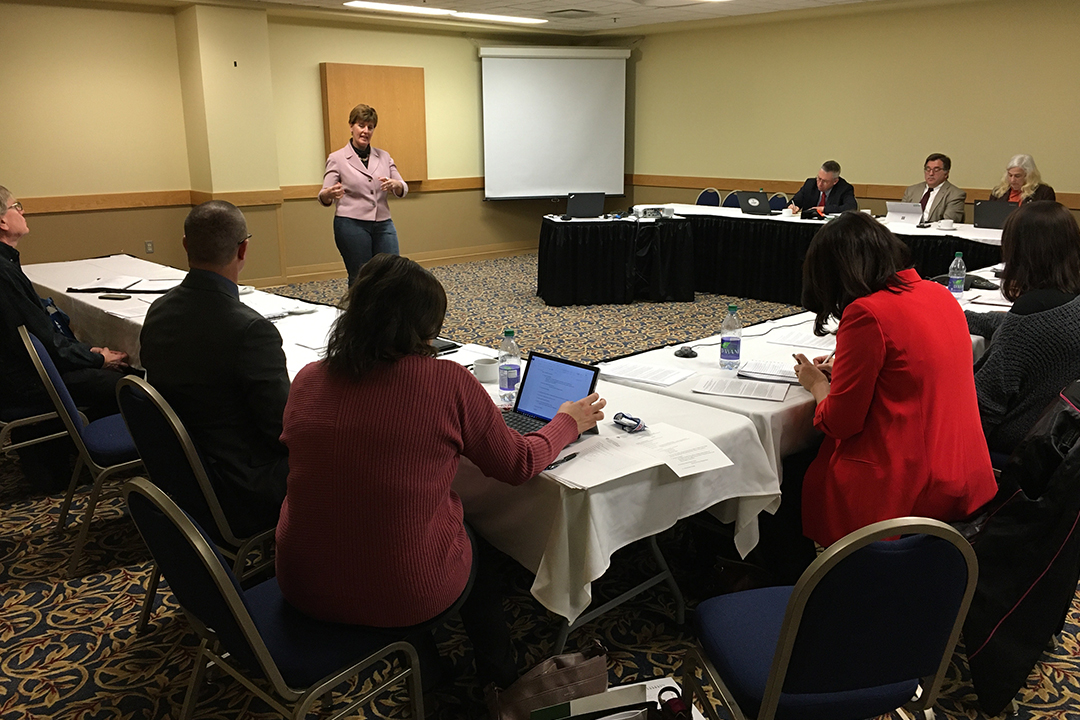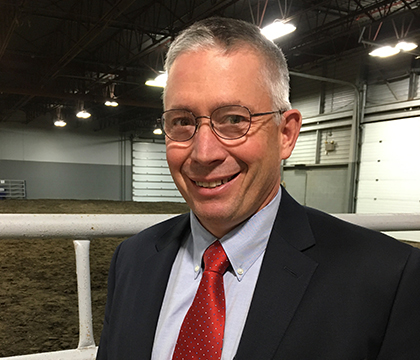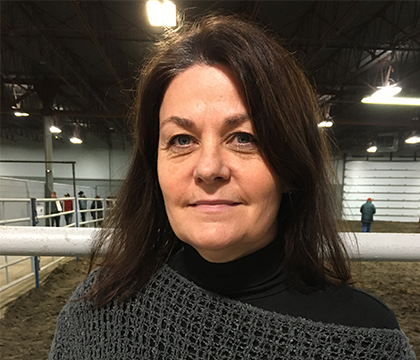
Two new members join LFCE’s Strategic Advisory Board
The members of the Strategic Advisory Board of the Livestock and Forage Centre of Excellence welcomed two new board members at their fall meeting.
By Lana HaightDr. Dan Thomson (PhD, DVM) is a professor at the College of Veterinary Medicine at Kansas State University. He accepted a call from the board to be the international representative on the SAB.
Dr. Irena Creed (PhD) is associate vice-president of research at the University of Saskatchewan and is one of two university representatives. She replaces Dr. Dena McMartin (PhD, P.Eng.).
Established in the summer of 2018, the SAB advises the deans of the Western College of Veterinary Medicine and the College of Agriculture and Bioresources, as well as the director of the LFCE. Board members ensure that the university maintains its links with the other LFCE stakeholders – government and industry. Of the 12 members, five represent industry, three represent government and two represent the university. The remaining two are a national representative and the international representative.
After their first board meeting, the new board members could hardly contain their enthusiasm for the University of Saskatchewan’s world-class agricultural research, education and outreach centre.
“It’s a remarkable partnership that is going to serve not only the producers and the livestock and forage industries in Canada, but it’s going to be global centre that a lot of people will point to as the north star in agriculture,” said Thomson.
 Thomson envisions building a two-way relationship with the scientists who conduct research at the LFCE. He is looking forward to learning from the USask faculty and contributing to the profile of the centre as he spreads the word about these discoveries through his global networks.
Thomson envisions building a two-way relationship with the scientists who conduct research at the LFCE. He is looking forward to learning from the USask faculty and contributing to the profile of the centre as he spreads the word about these discoveries through his global networks.
In addition to being recognized in the academic world, Thomson has been quoted in mainstream media on issues including animal welfare, beef cattle production and cattle health management. He also hosts “Doc Talk” a veterinary television show that airs on RFD-TV, an agriculture television network produced in the U.S. that is viewed in more than 45 million homes worldwide. Episodes are also posted on Facebook.
“I will be able to amplify the message of the LFCE to my network and to bring my network to the LFCE. It will be a lot of fun!”
Creed also has an extensive network, albeit different than Thomson’s, that she intends to tap into with the message of the LFCE.
“I see myself as being a bridge between the university and the partners that are part of this centre of excellence. I’m hoping to bring to the table funding opportunities and to be an advocate for the centre with other potential partners,” she said.
 As an ecosystem scientist, she is particularly interested in learning more about the environmental impact of beef and forage production and how research at the LFCE can improve the practices of producers to reduce that impact.
As an ecosystem scientist, she is particularly interested in learning more about the environmental impact of beef and forage production and how research at the LFCE can improve the practices of producers to reduce that impact.
“Recently, there has been a lot of finger-pointing at the beef industry as having a negative environmental impact. However, data to support this finger-pointing is limited. I think we need to benchmark environmental impacts and then work with the LFCE to explore how to reduce contributions to greenhouse gases and surface water pollution.”
Creed is impressed with the “astounding array” of research conducted in the first year.
“I am really excited about the scope of what the LFCE is doing and the wonderful group of passionate people involved. The potential and the opportunities moving forward are so tremendous that I have no doubt that this will be a world-class centre that not only will have relevance for the province and the country but far beyond as well.”
SAB chair Duane Thompson is thrilled to have Creed and Thomson join the board.
“The U.S. is our largest trading partner when it comes to beef cattle. We are joined at the hip to the American beef and forage industries. To get the perspective of somebody as knowledgeable at Dan is going to be invaluable,” said Thompson.
“Irena brings a fresh message from the university, that the president of the university sees the value in the forage and beef industries and wants to advance those industries. That is a huge encouragement.”
The board held its 2019 fall meeting in Regina during the Western Canadian Agribition.

